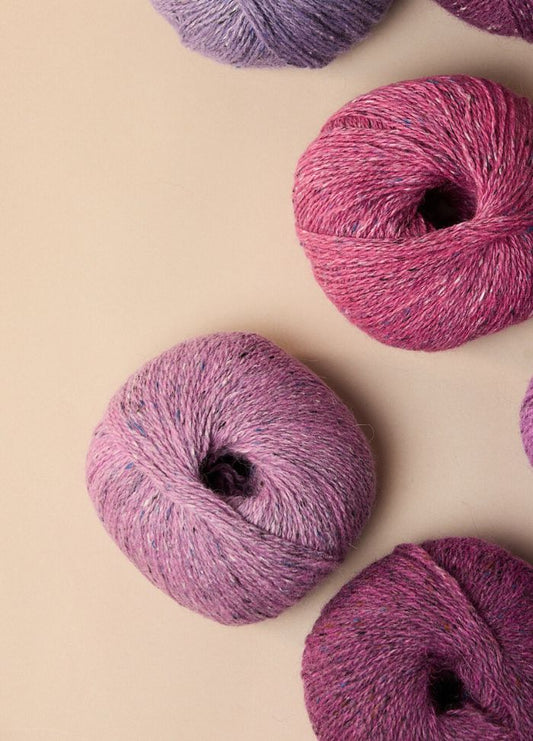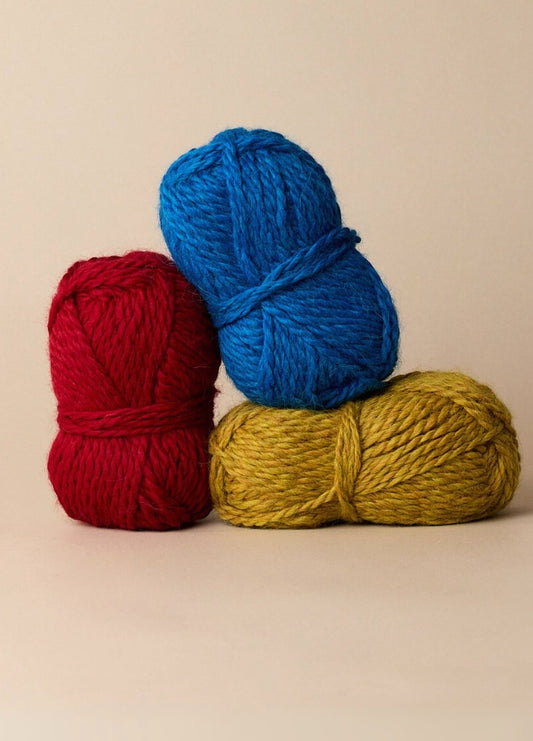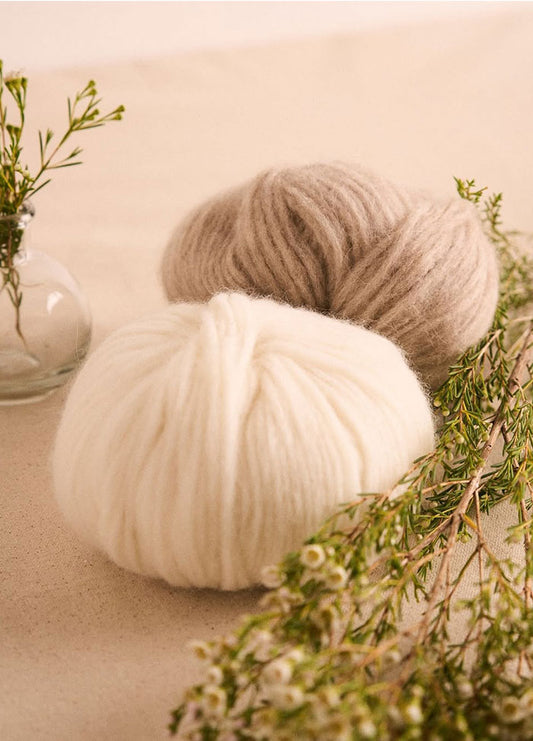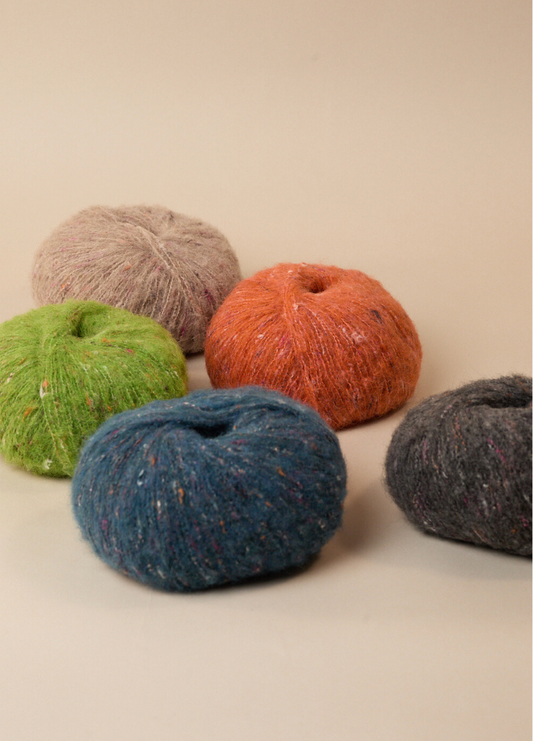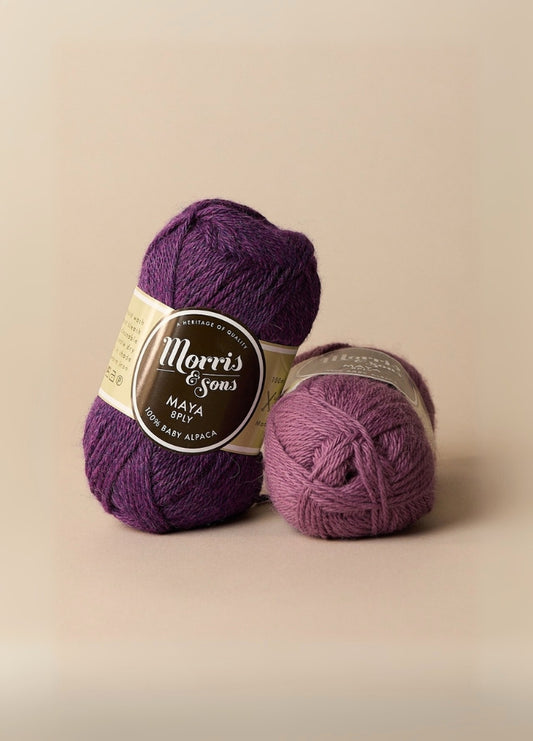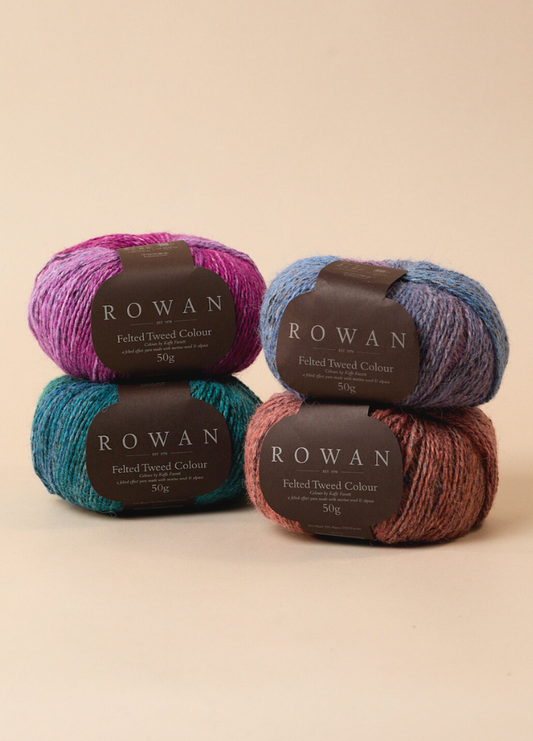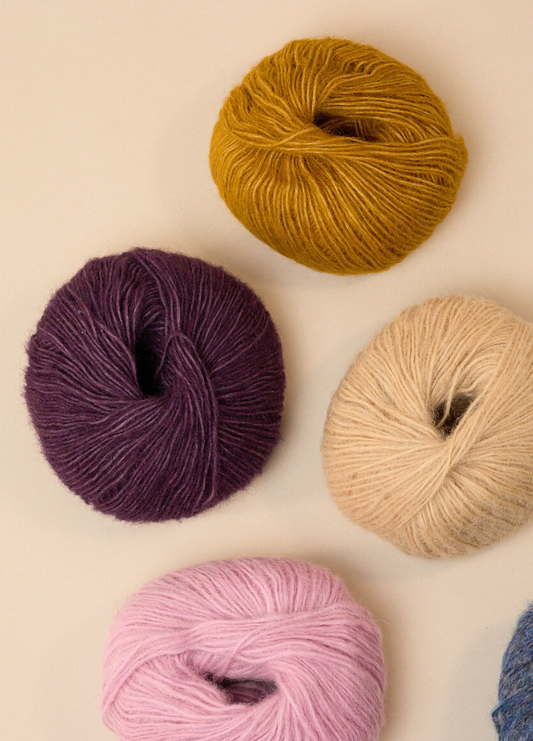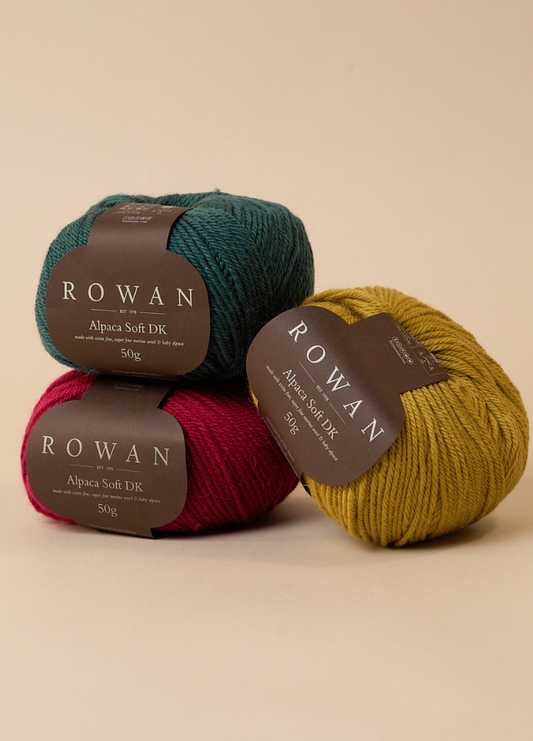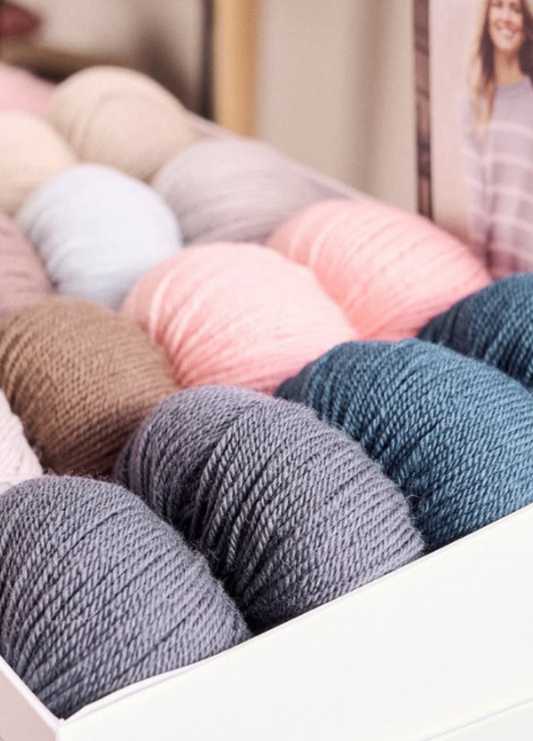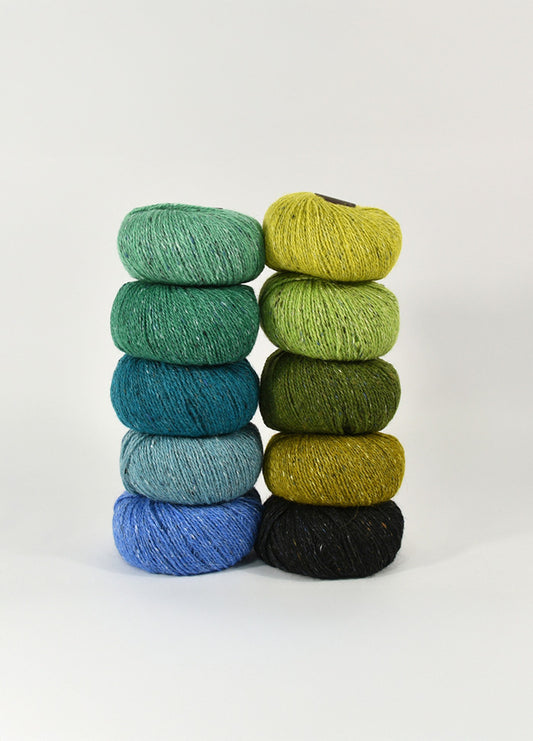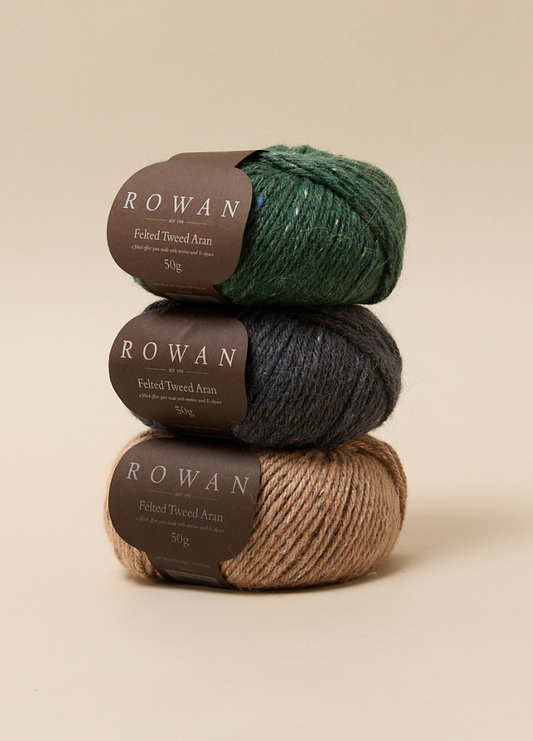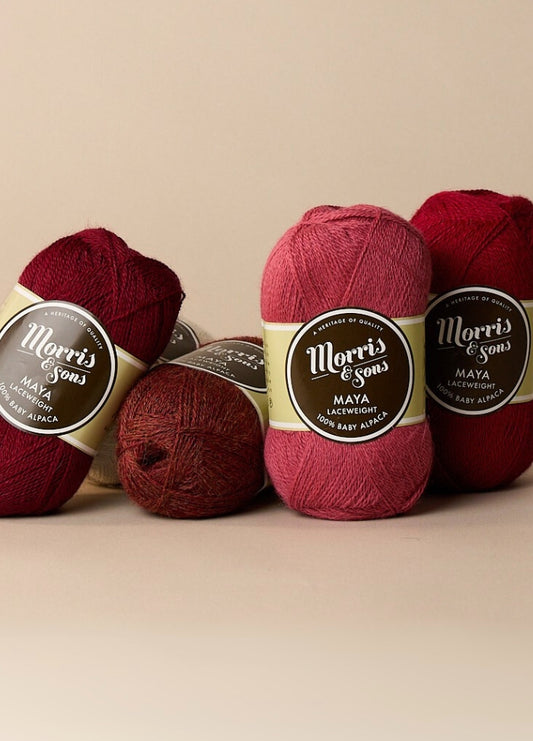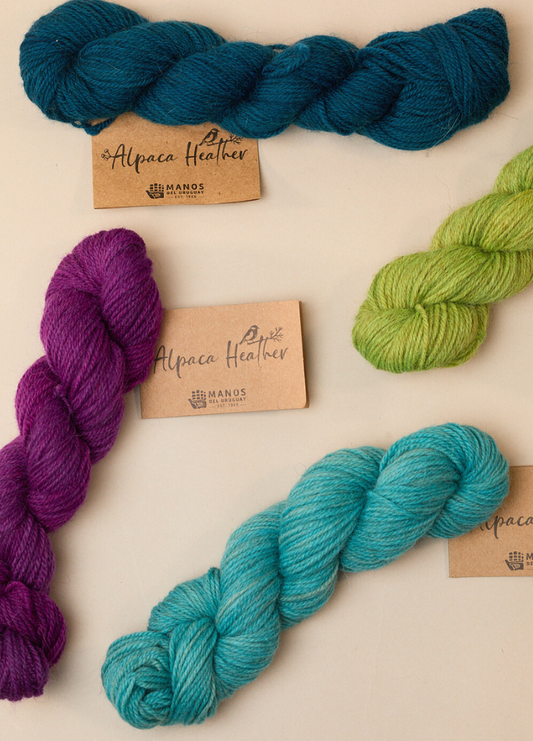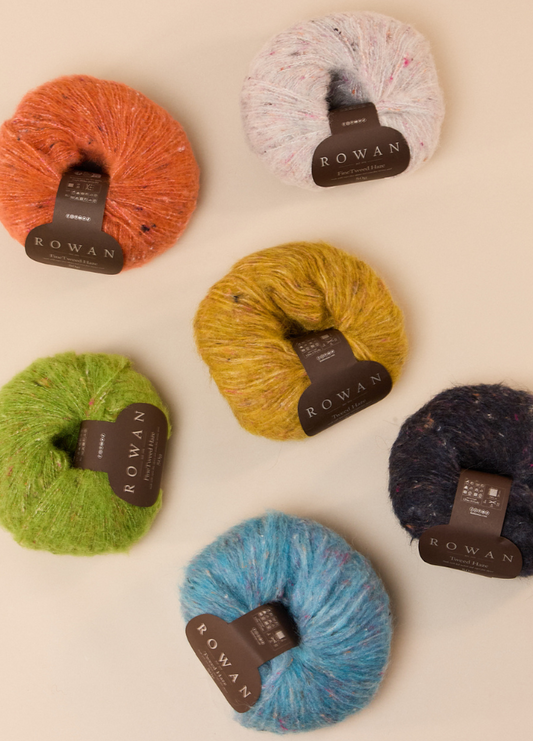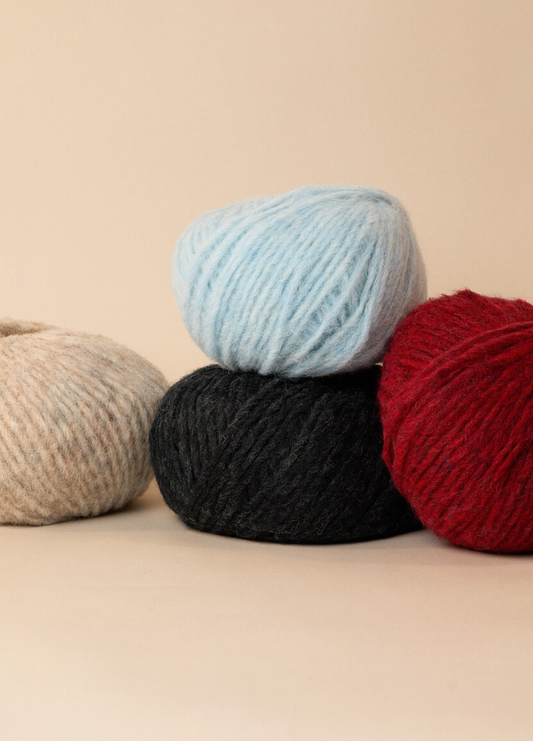
Collection: Alpaca
-
-30%
Alpaca
Warmer than sheep's wool, with an appealing shine, alpaca yarns have a soft and silky feel. Alpaca fibre does not contain lanolin, and may be a hypoallergenic choice for those who are sensitive to wool. With a beautiful drape, alpaca is great for knit or crochet accessories.
Shop our range of more than 20,000 products and get started on your new artistic journey with yarn.
Alpaca yarn is spun from the fleece of Alpacas. From The Camelids family, Alpacas are similar to camels and are native to South America. Indigenous South Americans have bred alpacas for thousands of years. Since this luxury yarn has so many beneficial qualities, it was often reserved for royalty, and it was sometimes known as "the fibre of the gods." There are 2 breeds of Alpaca: The Huacaya alpaca and the Suri Alpaca with yarn from each breed prized for different reasons.
Huacaya alpacas are bigger than Suri alpacas and have more crimp to their fibres making them appear fuzzier. Suri Alpacas have a more shaggy appearance with much straighter and finer fibres.
Alpaca Yarn comes in a variety of weights including 2ply, 4ply, 8ply and chunkier. Alpaca wool is considered to be softer than sheep's wool and is more durable.
Characteristics Of Alpaca Yarn
Alpaca wool is considered to be softer than sheep's wool and is more durable.
The Alpaca fibres have small air pockets which provide breathability. Alpaca yarn is also highly insulative making it one of the warmest animal fibres. It is also water resistant and difficult to set fire too.
Alpaca fibres do not contain lanolin which makes them hypoallergenic. Lanolin is a waxy substance that’s produced naturally among some animals (like sheep) and it can cause allergic reactions in people. Those who are sensitive to it may experience itching, red eyes, and blisters, to name a few symptoms.
Benefits of Alpaca Yarn
Garments made from Alpaca yarn are very warm and soft. The yarn is also hypoallergenic and moisture wicking making it perfect for a variety of knits. Materials that are naturally wicking draw moisture away from the body and allow it to evaporate quickly, so you stay dry and comfortable. This feature is especially key for people who enjoy hunting, hiking, or simply being outdoors and are possibly in wet conditions or sweating from physical exertion. You also get a halo from the yarn making garments have subtle fuzziness.
While all animal yarns will pill, because the alpaca fibres are strong, long, and silky, they're less prone to pilling. This keeps your garment looking good, so you can enjoy wearing it longer.
Care of Alpaca Yarn
100% Alpaca yarn can have a tendency to stretch, especially in larger or bulkier garments. We recommend always drying garments flat and even knitting them a couple of centimetres shorter to allow for this stretch. You can also hold 100% alpaca yarn with a finer yarn such as a Mohair Silk to give it additional stability or look at blends of Alpaca with other fibres.
Selecting the right yarn
When selecting yarns it's important to be aware all yarns handle differently and will give varied textures and drape. This is why it's important to knit or crochet a gauge swatch. This allows you to both check the feel of the fabric and the needle size to use (again all knitters have a slightly different tension)
For more information about substituting yarns click here.
For more information about gauge swatching click here.
If you need more help finding a yarn for your project feel free to send us a message, and we’ll get back to you with our expert advice or even pop into your local store.
FAQs
What are the disadvantages of alpaca wool?
Garments made from 100% Alpaca Yarn have a tendency to stretch especially when wet so proper care needs to be taken when washing.
Some people can find alpaca yarn itchy, especially on sensitive skin. The yarn also has a slight halo which can shed when wearing leaving hair showing on darker clothes.
What is alpaca wool good for?
100% Alpaca yarn is very warm so is great for accessories such as hats and scarves whereas garments are more suited to Aplaca blended with other fibres.
Is alpaca the warmest?
Alpaca fibre has an advantage over sheep wool because of the extra hollow space in the fibre. This additional space creates a greater thermal capacity and allows for more warm air to fill the textile and provide extra warmth.
Warmer than sheep's wool, with an appealing shine, alpaca yarns have a soft and silky feel. Alpaca fibre does not contain lanolin, and may be a hypoallergenic choice for those who are sensitive to wool. With a beautiful drape, alpaca is great for knit or crochet accessories.
Shop our range of more than 20,000 products and get started on your new artistic journey with yarn.
Alpaca yarn is spun from the fleece of Alpacas. From The Camelids family, Alpacas are similar to camels and are native to South America. Indigenous South Americans have bred alpacas for thousands of years. Since this luxury yarn has so many beneficial qualities, it was often reserved for royalty, and it was sometimes known as "the fibre of the gods." There are 2 breeds of Alpaca: The Huacaya alpaca and the Suri Alpaca with yarn from each breed prized for different reasons.
Huacaya alpacas are bigger than Suri alpacas and have more crimp to their fibres making them appear fuzzier. Suri Alpacas have a more shaggy appearance with much straighter and finer fibres.
Alpaca Yarn comes in a variety of weights including 2ply, 4ply, 8ply and chunkier. Alpaca wool is considered to be softer than sheep's wool and is more durable.
Characteristics Of Alpaca Yarn
Alpaca wool is considered to be softer than sheep's wool and is more durable.
The Alpaca fibres have small air pockets which provide breathability. Alpaca yarn is also highly insulative making it one of the warmest animal fibres. It is also water resistant and difficult to set fire too.
Alpaca fibres do not contain lanolin which makes them hypoallergenic. Lanolin is a waxy substance that’s produced naturally among some animals (like sheep) and it can cause allergic reactions in people. Those who are sensitive to it may experience itching, red eyes, and blisters, to name a few symptoms.
Benefits of Alpaca Yarn
Garments made from Alpaca yarn are very warm and soft. The yarn is also hypoallergenic and moisture wicking making it perfect for a variety of knits. Materials that are naturally wicking draw moisture away from the body and allow it to evaporate quickly, so you stay dry and comfortable. This feature is especially key for people who enjoy hunting, hiking, or simply being outdoors and are possibly in wet conditions or sweating from physical exertion. You also get a halo from the yarn making garments have subtle fuzziness.
While all animal yarns will pill, because the alpaca fibres are strong, long, and silky, they're less prone to pilling. This keeps your garment looking good, so you can enjoy wearing it longer.
Care of Alpaca Yarn
100% Alpaca yarn can have a tendency to stretch, especially in larger or bulkier garments. We recommend always drying garments flat and even knitting them a couple of centimetres shorter to allow for this stretch. You can also hold 100% alpaca yarn with a finer yarn such as a Mohair Silk to give it additional stability or look at blends of Alpaca with other fibres.
Selecting the right yarn
When selecting yarns it's important to be aware all yarns handle differently and will give varied textures and drape. This is why it's important to knit or crochet a gauge swatch. This allows you to both check the feel of the fabric and the needle size to use (again all knitters have a slightly different tension)
For more information about substituting yarns click here.
For more information about gauge swatching click here.
If you need more help finding a yarn for your project feel free to send us a message, and we’ll get back to you with our expert advice or even pop into your local store.
FAQs
What are the disadvantages of alpaca wool?
Garments made from 100% Alpaca Yarn have a tendency to stretch especially when wet so proper care needs to be taken when washing.
Some people can find alpaca yarn itchy, especially on sensitive skin. The yarn also has a slight halo which can shed when wearing leaving hair showing on darker clothes.
What is alpaca wool good for?
100% Alpaca yarn is very warm so is great for accessories such as hats and scarves whereas garments are more suited to Aplaca blended with other fibres.
Is alpaca the warmest?
Alpaca fibre has an advantage over sheep wool because of the extra hollow space in the fibre. This additional space creates a greater thermal capacity and allows for more warm air to fill the textile and provide extra warmth.
